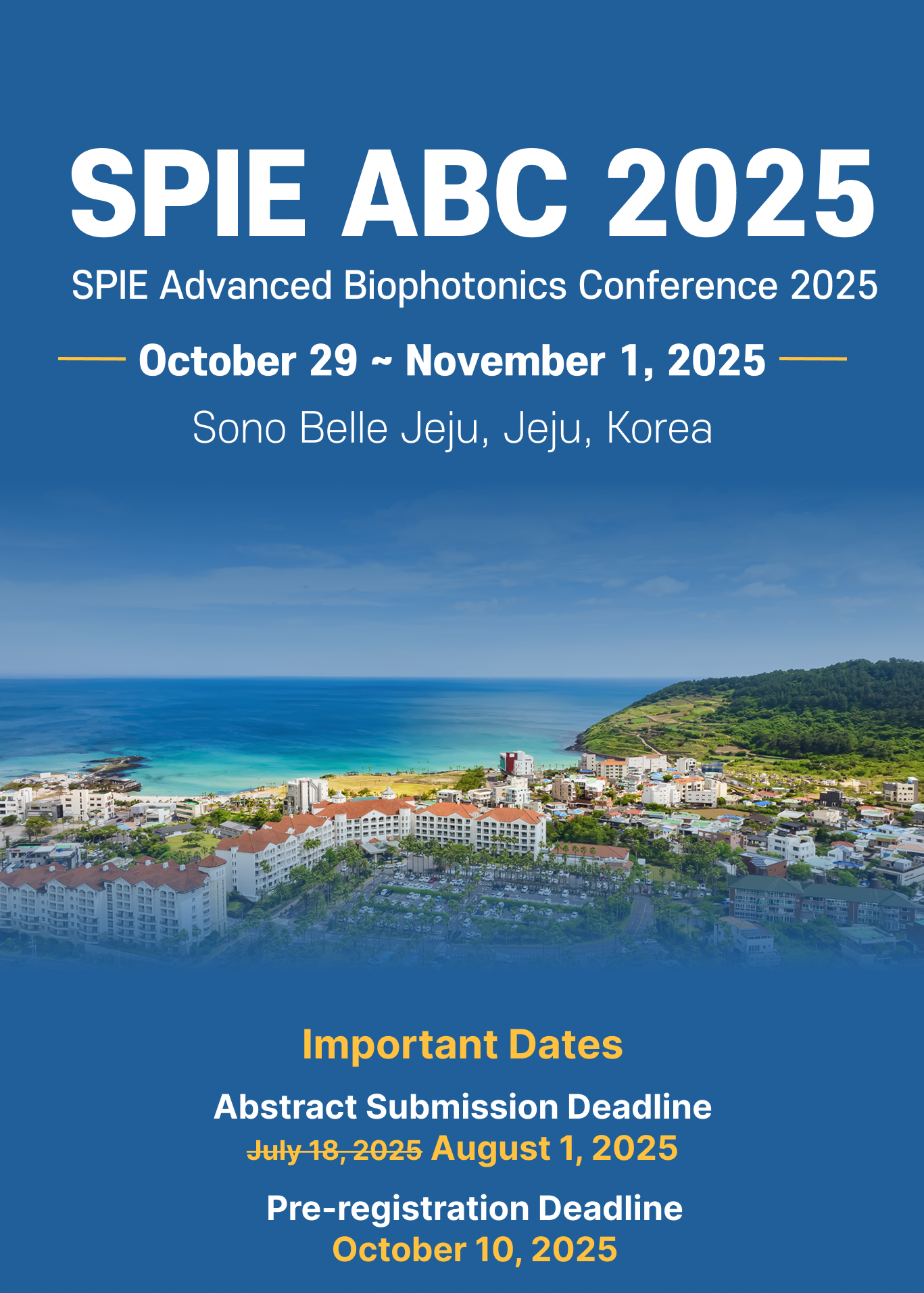58th BANGKOK International Conference on “Chemical, Biological & Environmental Engineering” (BCBEE-25) Dec. 22-24, 2025 Bangkok (Thailand)
BCBEE-25
- URL: https://drabl.org/conference/440
- Event Date: 2025-12-22 ~ 2025-12-24
- Submission Date: 2025-12-01
- Organizer: DRABL
- Location: Bangkok, Thailand
Chemical & Material Sciences (General) Environmental & Geological Engineering Bioinformatics & Computational Biology Molecular Biology Environmental & Geological Engineering Environmental Sciences Biodiversity & Conservation Biology Environmental & Occupational Medicine Environmental Law & Policy
Call for papers/Topics
Full Articles/ Reviews/ Shorts Papers/ Abstracts are welcomed in the following research fields:
I. Chemical Engineering
- Process Intensification & Design:
- Modular and intensified chemical processes.
- Microreactors and lab-on-a-chip systems.
- Advanced separation technologies (membranes, adsorption, reactive distillation).
- Process modeling, simulation, and optimization (including AI/ML applications).
- Sustainable process design and green engineering principles.
- Catalysis & Reaction Engineering:
- Novel catalyst development (nanocatalysts, biocatalysts, single-atom catalysts).
- Catalysis for sustainable energy (e.g., hydrogen production, CO2 conversion).
- Advanced reaction kinetics and reactor design.
- Photocatalysis and electrocatalysis.
- Materials Science & Engineering (Chemical Aspects):
- Advanced functional materials (polymers, ceramics, composites).
- Nanomaterials synthesis and characterization for specific applications.
- Smart materials (self-healing, responsive materials).
- Materials for energy storage and conversion.
- Bio-based and biodegradable materials.
- Thermodynamics & Transport Phenomena:
- Advanced thermodynamic modeling and simulation.
- Fluid mechanics, heat transfer, and mass transfer in complex systems.
- Multiphase flow and interfacial phenomena.
- Computational Fluid Dynamics (CFD) for process analysis.
- Petroleum & Petrochemical Engineering (Sustainable Aspects):
- Cleaner production technologies in the oil and gas industry.
- Conversion of CO2 to chemicals and fuels.
- Valorization of refinery by-products.
II. Biological Engineering / Biochemical Engineering
- Bioprocess Engineering:
- Bioreactor design and optimization for microbial and cell cultures.
- Upstream and downstream processing in biomanufacturing.
- Bioseparations and purification technologies.
- Process analytical technology (PAT) for bioprocesses.
- Synthetic Biology & Metabolic Engineering:
- Designing and engineering biological systems for novel functions.
- Metabolic pathway engineering for biosynthesis of chemicals, fuels, and pharmaceuticals.
- CRISPR-based technologies for genetic manipulation.
- Biosensors and diagnostic tools development.
- Biomaterials & Regenerative Medicine:
- Design and fabrication of biomaterials for tissue engineering and drug delivery.
- Scaffolds for regenerative medicine and organ-on-a-chip systems.
- Bio-nanotechnology and nanomedicine.
- Biocompatibility and surface modification of materials.
- Biofuels & Bioenergy:
- Algal biofuels and advanced lignocellulosic biomass conversion.
- Biorefineries for integrated production of fuels, chemicals, and materials.
- Anaerobic digestion and biohydrogen production.
- Techno-economic analysis of bioenergy systems.
- Food & Agricultural Engineering (Biochemical aspects):
- Bioprocessing for food ingredients and supplements.
- Sustainable food production and precision agriculture.
- Waste valorization in food processing.
- Novel food technologies (e.g., cultivated meat).
- Environmental Biotechnology:
- Bioremediation of contaminated sites (soil, water, air).
- Microbial fuel cells and bioelectrochemical systems.
- Biotechnology for waste treatment and resource recovery.
III. Environmental Engineering
- Water Resources & Wastewater Treatment:
- Advanced water purification technologies (membranes, advanced oxidation processes).
- Desalination and water reuse.
- Removal of emerging contaminants (pharmaceuticals, microplastics, PFAS).
- Resource recovery from wastewater (nutrients, energy).
- Smart water networks and real-time monitoring.
- Air Pollution Control:
- Carbon Capture, Utilization, and Storage (CCUS) technologies.
- Emission control for industrial and mobile sources.
- Indoor air quality and air pollution modeling.
- Technologies for removal of VOCs, NOx, SOx, and particulate matter.
- Solid Waste Management & Resource Recovery:
- Waste-to-energy technologies (incineration, pyrolysis, gasification).
- Sustainable landfill management.
- Recycling and recovery of critical raw materials.
- Circular economy principles for waste minimization.
- Valorization of waste into valuable products.
- Environmental Modeling & Risk Assessment:
- Pollutant transport and fate modeling in environmental systems.
- Climate change modeling and impact assessment.
- Life Cycle Assessment (LCA) for products and processes.
- Environmental risk assessment and management.
- Sustainable Cities & Infrastructure:
- Green building materials and energy-efficient building design.
- Sustainable urban planning and smart city solutions.
- Nature-based solutions for urban water management and climate adaptation.
- Environmental impact assessment for infrastructure projects.
- Remediation Technologies:
- Phytoremediation, bioremediation, and chemical remediation of contaminated soil and groundwater.
- Sediment remediation techniques.
IV. Cross-Cutting & Interdisciplinary Themes
- Sustainable Development & Circular Economy:
- Integration of chemical, biological, and environmental engineering for sustainable development.
- Industrial symbiosis and eco-industrial parks.
- Policy and economic aspects of green technologies.
- Computational & Data-Driven Approaches:
- Artificial Intelligence (AI) and Machine Learning (ML) in all sub-disciplines (e.g., process optimization, material design, environmental forecasting).
- Big data analytics for complex engineering systems.
- Digital Twins for process monitoring and optimization.
- Computational chemistry and biology for molecular design.
- Nanotechnology in C, B, & E Engineering:
- Nanomaterials for catalysis, separation, sensing, and environmental remediation.
- Health and environmental implications of nanomaterials.
- Safety, Health & Risk Management:
- Process safety and inherently safer design.
- Occupational health and safety in chemical and biological industries.
- Risk assessment for novel technologies and processes.
- Education & Professional Development:
- Curriculum development for modern chemical, biological, and environmental engineers.
- Hands-on learning, simulations, and virtual labs.
- Ethics in engineering and sustainable practices.
- Training for the future workforce in these evolving fields.
- Policy, Regulations & Standards:
- Environmental regulations and their impact on technological development.
- International collaborations for addressing global environmental issues.
- Standardization in green technologies and sustainable practices.
















